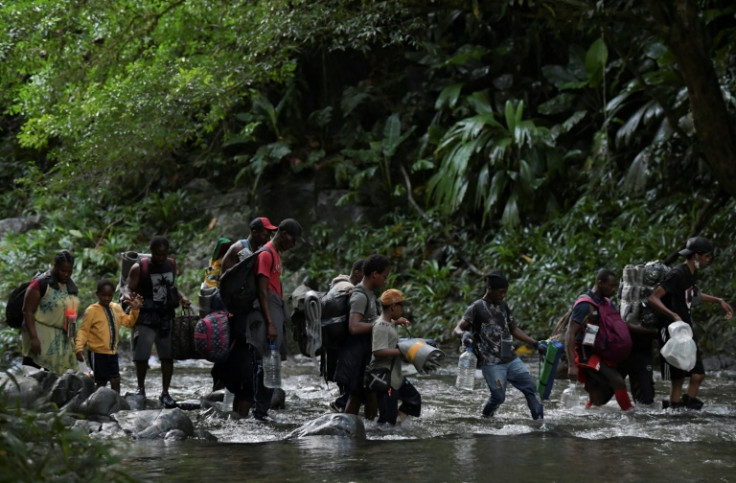
The Panamanian government has been carrying out deportation flights from the Darien Gap, the treacherous jungle path in its border with Colombia that has become a key migration route, as part of an agreement with the U.S. aimed at cracking down on immigration. The initiative started in August, and a little over a month after repatriation flights started taking place, hundreds of migrants from all over the world have been returned to their home countries.
After Colombian, Panamanian and American officials met last month to discuss efforts for the socioeconomic regularization and integration of migrants, the repatriation of migrants was also a key concern for government officials from all three countries.
The José Raúl Mulino administration is seemingly picking up the pace as the process gathers steam: according to data from Panama's National Immigration Service, the Central American nation has already deported 433 migrants that entered its territory irregularly via the Darien Gap. The 11th repatriation flight took place on Sept. 20 and involved 36 Ecuadorian nationals.
Roger Mojica, Director of Panama's National Immigration Service, told local media that the 11 flights that have taken place have had an approximate cost of $900,000. The project is fully funded by the U.S.
Mojica also highlighted that the flow of irregular migration taking place at the Darien Gap has decreased by "about 100,000 people" compared to the same date last year.
Washington has pledged $6 million in funding for migrant repatriations from the Central American nation in the hope of reducing irregular crossings at its own southern border.
The agreement also includes U.S. support for Panama with equipment, transportation, and logistics for foreigners detected within migratory flows that violate Panamanian immigration laws. Mulino detailed in August that the flights will take migrants back to Colombia, where migrants start their journey through the treacherous jungle.
Mulino has heavily focused on cracking down on migration through the Darien since taking office on July 1. Last year, over half a million people crossed the gap, more than half of them Venezuelans.
His administration has implemented a series of measures, including setting up barbed wire in different paths through the path. Jorge Gobea, the director general of the National Border Service, said the measure consists on 3 miles of barbed wire on five trails to channel migrants into a "humanitarian corridor."
"We closed more than five clandestine routes which were used by organized crime to mobilize migrants from Colombia to Panama. The intention was to channel this flow, not to interrupt it, but to send them through one sole route," he said.
© 2025 Latin Times. All rights reserved. Do not reproduce without permission.







